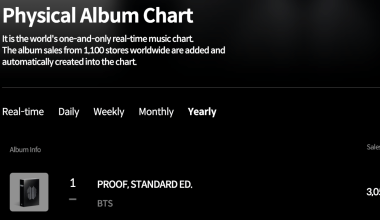Creating music is only part of the journey for any artist. The path to releasing and monetizing your work involves understanding some essential tools and processes. One such crucial tool is the ISRC check. Whether you’re new to music distribution or looking to sell your music on platforms like Beatport, knowing how to manage ISRCs (International Standard Recording Codes) is critical.
What is an ISRC Check?
An ISRC check ensures your music is properly encoded with a unique identifier. This code tracks your song’s performance across platforms. Think of it as the digital fingerprint of your recording. Without an ISRC, your track may not be recognized, and you could miss out on royalties.
Why is it Important?
An ISRC is essential for:
- Ensuring accurate royalty collection.
- Selling your music on digital platforms.
- Tracking song plays across radio, streaming services, and stores.
Selling Your Music on Beatport
Beatport is one of the leading platforms for electronic and dance music. To get your tracks listed, an ISRC is non-negotiable. The platform relies on these codes to catalog music and ensure proper licensing.
Before you list your music, perform an ISRC check. This ensures the code is valid and linked to your song. Many distributors help you obtain ISRCs, but you can also generate them yourself if you’re an independent artist.
How to Get an ISRC
Obtaining an ISRC is straightforward. There are two main ways:
- Through a Distributor: Services like TuneCore, DistroKid, and CD Baby often generate ISRCs for you when you upload your music.
- Register as an ISRC Manager: You can directly apply to your country’s designated ISRC agency and become a manager. This allows you to generate your own codes.
Performing an ISRC Check
To verify your ISRC, follow these steps:
- Use an online ISRC lookup tool. These tools let you search for existing ISRCs to ensure they are accurate and not duplicates.
- Cross-check with your distributor. If you’re unsure about the codes, contact your distributor for clarification.
The Importance of Extended Play Tracks
If you’re releasing an EP, each track requires its own unique ISRC. This ensures every recording is properly accounted for, especially when selling on Beatport. Extended plays (EPs) are popular in electronic music, so handling ISRCs accurately is crucial.
Key Points for Independent Artists
Independent artists often juggle multiple responsibilities. Here are some ISRC-related tips:
- Always keep a record of your ISRCs.
- Use reliable software or spreadsheets to track your codes.
- Ensure your metadata is complete and correct.
Making Your Music Discoverable
When you sell music on platforms like Beatport, metadata is key. An ISRC is part of this metadata, and an ISRC check helps ensure your tracks are indexed correctly.
Benefits of ISRC Checks
- Royalty Collection: Without a valid ISRC, collecting royalties can become a challenge.
- Global Recognition: An ISRC makes it easy to track where your music is played worldwide.
- Platform Readiness: Digital stores and streaming services require ISRCs to process and catalog tracks.
Final Thoughts
An ISRC check might seem like a small detail, but it’s one of the most important steps in preparing your music for release. Whether you’re selling on Beatport or distributing through streaming platforms, an accurate ISRC ensures your work gets the credit and earnings it deserves.
For further reading, explore these related articles:
For additional resources on music marketing and distribution, visit Deliver My Tune.






